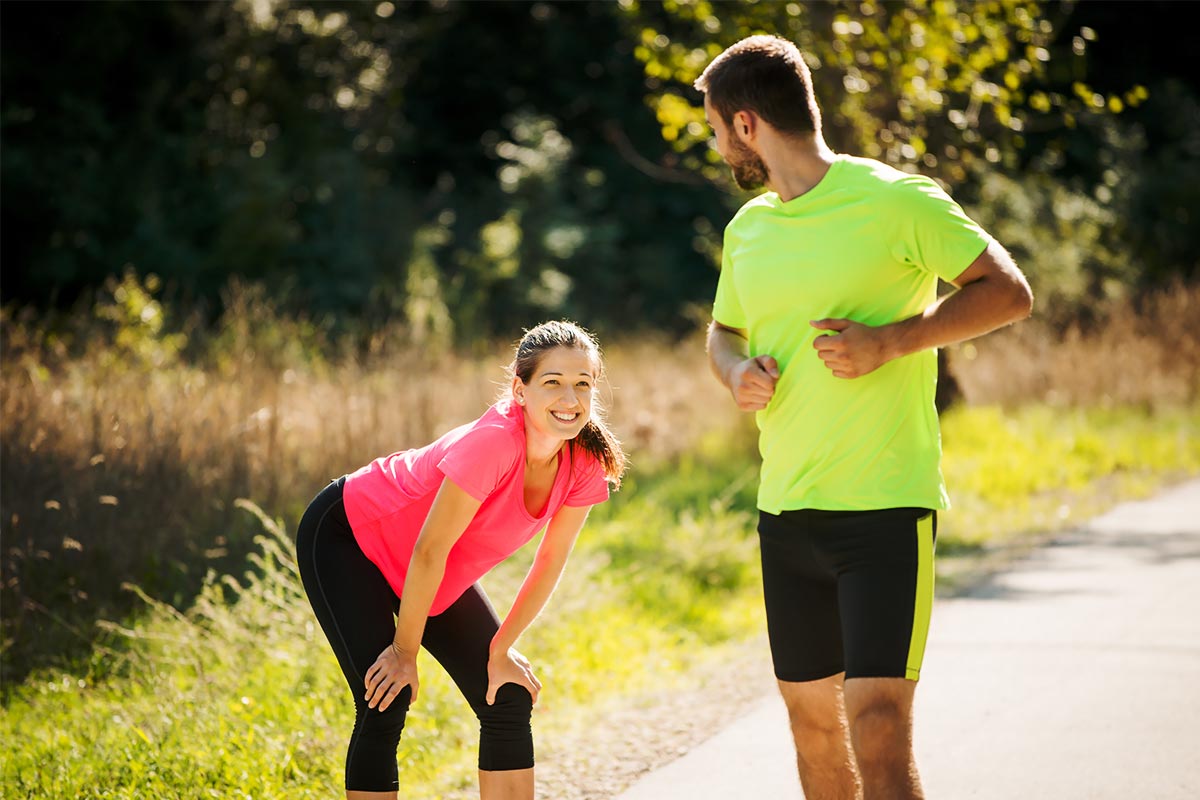Our Blog

Learn How to Increase Immunity with Exercises

Having a chiseled body with six-packs or the perfect waist size is of no use if your body can’t defend itself from disease-causing microorganisms. The ability of your body to protect itself from germs and microbes depends on how strong your immunity system is. This is why it is of utmost importance that you pay special attention to learning how to boost your immunity; and one of the ways through which you can remarkably improve it is with the help of various exercises. This is what we are presenting to you today.
Tips to Increase Immunity by Exercising Properly
Exercises help us in not only staying in shape and maintaining our fitness level, but they also provide a protective layer that shields us from getting sick. However, just because they have the potential to boost your immunity doesn’t mean that you have to overexert yourself by exercising too much since it will result in you injuring yourself. Reaching the optimum level between no exercise and too much exercise is the key to staying healthy.
The fact of the matter is that immunity-boosting exercises are moderate by nature and don’t require a herculean effort. This means that they can be performed by almost anyone. It should be noted that in order to develop a strong immunity, the main focus shouldn’t be on the type of exercises, but rather on developing a bunch of habits that will help you reap the most benefits from your exercising efforts.
With the groundwork being laid in front of you, it is time for us to introduce you to the guideline that you need to follow to boost your immunity. Especially, when coronavirus has become a global concern, you need to know about these exercises to improve your immune system as currently the only solution for coronavirus is a strong immunity that can fight and defeat the killer viruses.
Understand What Your Body Can Endure

Everyone’s body is different. Naturally, the needs and requirements of your body will govern the type and amount of exercise that you can do.
This calls for getting a medical consolation at the first stage. It will help you learn about your body better, and when you know your strengths and weaknesses, you will be in a better position to plan your workout regime.
A certified medical practitioner will help you realize when is the apt time for you to exercise, or how much you can afford to push your body without jeopardizing it, among others.
While talking to your doctor regarding your intention to boost your immunity, make sure that you are completely transparent regarding your medical history. Inform him or her about any past injury or allergy or family health issues since all of these can harm your health.
However, don’t think that having any of these health issues will stop you from boosting your immunity. It is just that your workout sessions will look a bit different from others.
For instance, people who have asthma or any record of attacks such as heart stroke, heatstroke, or have been through any accidents that have affected their limbs or internal body parts, they might have to take a different route than others when it comes to designing their workout plan.
Exercise on a Regular Basis

Most of us have an extremely tight schedule in our daily life and we look for an easier and convenient routine for exercising. Many people simply pick one or two days of exercising in a week. Unfortunately, this is too little of an effort to boost your immunity.
We recommend you to take out 30 minutes every day from your schedule and allot it to exercising. Besides, you don’t even have to go for seven days a week. If you exercise for half-an-hour daily for five days a week, that will bring the total to 150 minutes of exercise weekly, which is enough for strengthening your immunity system.
You can use a smartphone app or a journal to keep track of how much time you are exercising every day. As we stated earlier, simple and moderate exercises will be enough to reach your desired goal. So, opt for biking, brisk walking, or swimming. In fact, activities such as playing outdoor games with your friends or kids, or even mowing your lawn can contribute towards boosting your immunity.
For those of you who are already involved in vigorous physical activities as part of their household chores or professional work, you don’t even have to give any additional effort towards exercising.
Plan Your Workout Regime Properly

In our next lesson on how to boost your immunity, we will guide you to plan your workout regime. In continuation of our previous point of finding time for exercising in your busy schedule, let us help you out even more.
You don’t have to exercise for a continuous 30-minute period. In fact, breaking down your exercise routine into small manageable chunks will not only help you save your time but will also prepare your body to gain immunity effectively. So, here’s what you can do.
Break the 30-minute exercise time into three 10-minute chunks. So, you can allot 10 minutes each for your morning, afternoon, and evening routines. For instance, you can jog for 10 minutes in the morning, then go for cycling or swimming in the afternoon for 10 minutes, and finish up by going for a brisk walk session in the park or your terrace in the evening for 10 minutes.
It has been seen that if you choose to workout continuously for a longer duration of time, it has the opposite effect. It ends up weakening both your heart and your lungs, making you extremely vulnerable to various diseases. Longer exercise session also increases the cortisol and norepinephrine levels in your body, which, in turn, suppresses your immune system.
You have to learn not to overestimate the abilities of your body. If you suddenly start training for a marathon or perform high-intensity cardio or strength-based exercises, not only will you minimize your chances of boosting your immunity, but you will also harm your body.
Light Exercises are Good During Illness

Of course, there will be days when you will be sick. So, does that mean you should stop exercising completely?
Well, it depends! You need to assess the situation your body is going through. To do that, look for a couple of factors.
First of all, check whether your symptoms are “above the neck” (nasal congestion, runny nose, sore throat, sneezing, etc.) or “below the neck” (aching muscles, fever, upset stomach, chest congestion, lower back pain, overall fatigue, stiff neck, etc.).
If your symptoms are “below the neck”, take a break from exercising that day. If the symptoms are “above the neck”, you can perform the exercises, but make sure you reduce their intensity. Having the self-awareness as to when your body can take it and when it demands rest is crucial in maintaining proper health.
This means that if you usually run in the morning, try brisk walking when you are sick. In the same line of thought, if you generally swim in the afternoon, try going for a light cycling session when you are sick.
At the end of the day, you are trying to boost your immunity to safeguard yourself from diseases. So, if you don’t protect your body when you are actually sick, your entire workout regime will go in vain. So, assess, plan, and act accordingly.
Warming up before exercising is always important, but its need is realized even more when you are sick. So, while warming up your body through free-hand exercises, if you notice that you are experiencing chest pain, difficulty in breathing, muscle spasms, or if you are feeling light-headed, among others, you immediately have to stop.
A Little Rest Also Helps in Boosting Your Immunity

Do you know why gym trainers recommend everyone to take at least a day off every week from exercising? No, they don’t do it simply to allow yourself to catch up on the latest TV series on Netflix or to grab some tacos in a nearby restaurant. They do it because your body simply requires rest.
Besides, you need to allow your body to gain the benefits of the exercises you have been doing the entire week. To do that, you need rest. So, make sure that you have 1-2 days in a week where you are not performing any immunity-boosting exercises.
Eating healthily will also multiply the chances of these exercises having positive effects in boosting your immunity. So, include lots of fruits, green vegetables, whole grains, nuts, dairy products, and meat to gain all the necessary vitamins and minerals for strengthening your immune system. Don’t forget to hydrate yourself and drink 8-10 glasses of water every day. Also, limit the consumption of alcohol and caffeine-based beverages as much as possible.
These habits when clubbed with exercising will go a long way in helping you achieve your desired goal.
Final Thoughts
Boosting your immunity should be one of your priorities when exercising because everything else won’t matter if your immune system is weak and is unable to save you from frequently falling sick. As you have seen, you don’t have to unleash your beast mode to strengthen your immunity. Simple steps can help you build a strong foundation.
So, get in your sweatshirt, bring out your workout gear, hit a multi-gym near you. We, at Starmark, are always ready to help you boost your immunity and live a healthy life, free from the danger of diseases.







